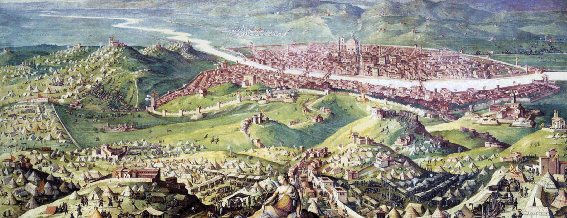The landscape in history, art, culture and urban planning; theoretical premises and experience.
DOI:
https://doi.org/10.6092/2281-4574/1349Abstract
The theme proposed attempts to re-define the concept of landscape, presenting it not only as a container of urban and rural territory, inhabitated and productive, man-made and natural, but also as a living organism, perhaps not in the best of health but despite its age still capable of withstanding the jolt of transformation produced by the disastreous phenomena known as natural calamities and above all by the many wounds inflicted on it by man who involving himself in the problem has re-defined the present day setting.
The landscape like a living organism suffers from the evil inflicted on it and benefits from the good bestowed on it, wearing the poor man’s dignified clothes which is more gratifying than the clothes of the rich insolent man, witness to good and bad government, however heir to a noble history, which has inspired lyrical compositions, works of literature, expressions of art, and creative projects, all encapsulated in the term “culture” which merits being acquired, known, and transmitted to future generations, hopefully enriched by what the present day civilization will transmit even by the well directed way of urban planning.
Downloads

Downloads
Published
Issue
Section
License
Gli autori che pubblicano su questa rivista accettano le seguenti condizioni:- Gli autori mantengono i diritti sulla loro opera e cedono alla rivista il diritto di prima pubblicazione dell'opera, contemporaneamente licenziata sotto una Licenza Creative Commons - Attribuzione che permette ad altri di condividere l'opera indicando la paternità intellettuale e la prima pubblicazione su questa rivista.
- Gli autori possono aderire ad altri accordi di licenza non esclusiva per la distribuzione della versione dell'opera pubblicata (es. depositarla in un archivio istituzionale o pubblicarla in una monografia), a patto di indicare che la prima pubblicazione è avvenuta su questa rivista.
- Gli autori possono diffondere la loro opera online (es. in repository istituzionali o nel loro sito web) prima e durante il processo di submission, poiché può portare a scambi produttivi e aumentare le citazioni dell'opera pubblicata (Vedi The Effect of Open Access).

